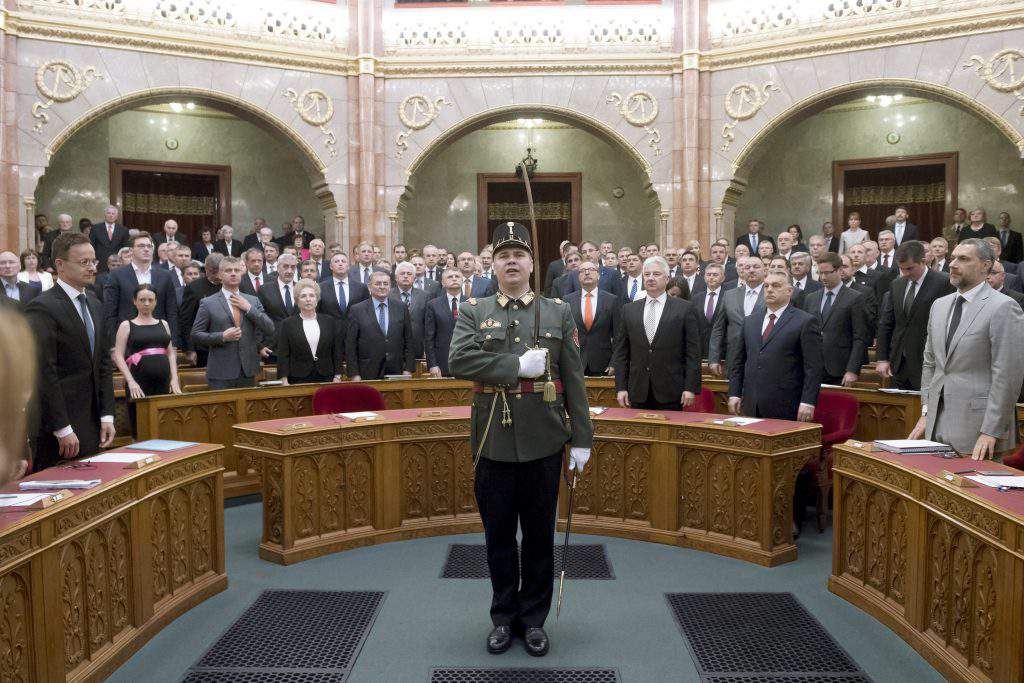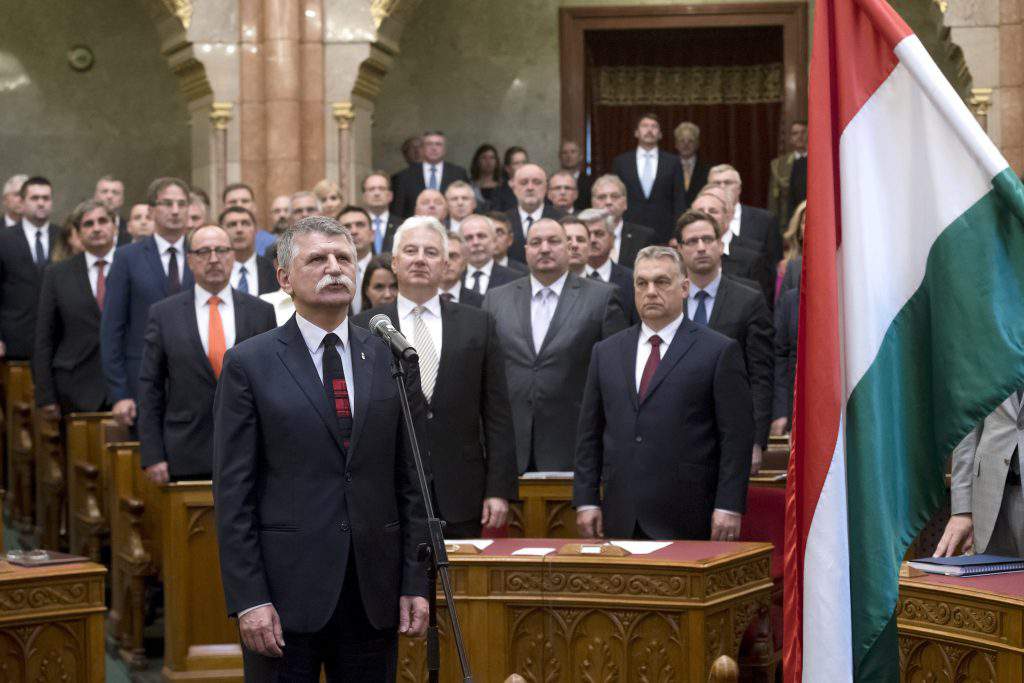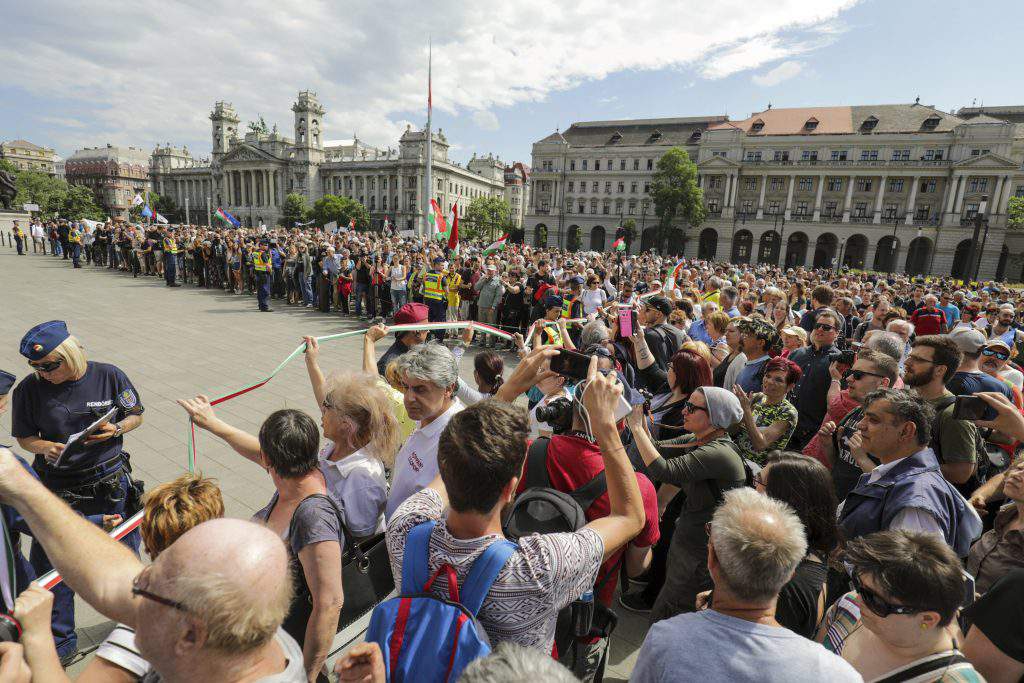Change language:
The start of Hungary’s new parliamentary cycle

Hungary’s lawmakers took their oaths on Tuesday at the start of the new parliamentary cycle.
The incumbent Fidesz-Christian Democrat alliance has 133 lawmakers, radical nationalist Jobbik 26, the Socialist-Párbeszed alliance 20, the leftist Democratic Coalition 9, green LMP 8 and Együtt has 1 lawmaker. There will be one independent MP and the German minority will also have a representative.

The new parliament’s inaugural session was opened by President János Áder. The president greeted the 199 lawmakers and the 12 parliamentary delegates of Hungary’s national minorities.
Journalists and guests were allowed into Parliament amid tight security measures. Kossuth Square has been closed off by police.
Hungary’s new national assembly adopted the body’s committee structure and elected committee officials at its first session on Tuesday.
Just as in the previous structure, parliament will have 15 permanent committees, with 10 to be chaired by Fidesz lawmakers and 5 by opposition MPs.
The new parliament’s committees and committee officials were approved unanimously with 183 votes.
László Kövér on Tuesday was elected the speaker of Hungary’s parliament. He was re-elected in a secret ballot with 143 votes in support, 35 against and one abstention. After the announcement of the results, Kövér took his oath of office.
In his inauguration address, Kövér promised predictability for the upcoming parliamentary cycle.
“I am and will remain predictable in my conviction that Hungary’s sole path to prosperity lies in parliamentary democracy based on the sovereign will of the people and that the only legitimate source of political power in our country is the community of the Hungarian voters,” Kövér said.
“I am and will remain predictable in my actions that will be aimed at respecting, enforcing and safeguarding the sovereign will of the Hungarian people under all circumstances,” he added.
“I ask and expect the same from all my fellow representatives, whether they be from the ruling parties or the opposition.”

He said that “in spite of the developments of the past years, weeks and hours”, he remained convinced that every member of the new parliament would respect the will of the Hungarian people and submit themselves to the rules of parliamentary democracy. He said those who do not would be harming Hungary as opposed to their political rivals. “And I can promise you that together with my political community we will protect our country and Hungarian democracy under all circumstances,” Kövér said.
Kövér has occupied the post of parliamentary speaker since August 6, 2010.
Meanwhile, the police escorted several demonstrators out of Kossuth Square in front of Parliament, the Budapest police headquarters (BRFK) has said on its website.
The commander of the Parliamentary Guard earlier ordered Kossuth Square to be closed off from 6pm on Monday to 2pm on Tuesday. In its reasoning it said parts of the programme concerning the new parliament’s inaugural session would take place outdoors. Those events are to be attended by the newly-elected MPs as well as several protected persons.
In a demonstration organised by the Civil Opposition Roundtable, a few hundred people demonstrated against the newly elected parliament and government at the Parliament building on Budapest’s Kossuth Square At the event dubbed “We don’t want this parliament and government!”, demonstrators briefly clashed with police as they tried to break through the police cordon near the Parliament’s south entrance.

On stages set up on the corner of Kossuth Square and Alkotmány Street, demonstrators talked about “renewing social solidarity” as the only way to stop “excessive power”.
Demonstrators flew Hungarian and EU flags. One banner said, “The constitution is invalid!”
Former co-leader of the green LMP party, Ákos Hadházy, who was among the protesters, told journalists that the incoming parliament “cannot be called legitimate.” Hadházy said he would take his oath as an elected lawmaker at a later date, and expressed regret over other opposition politicians attending the inaugural session. He said that by staying outside he wanted to “highlight how severe the situation is”.
Featured image: MTI
Source: MTI







